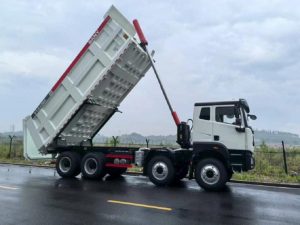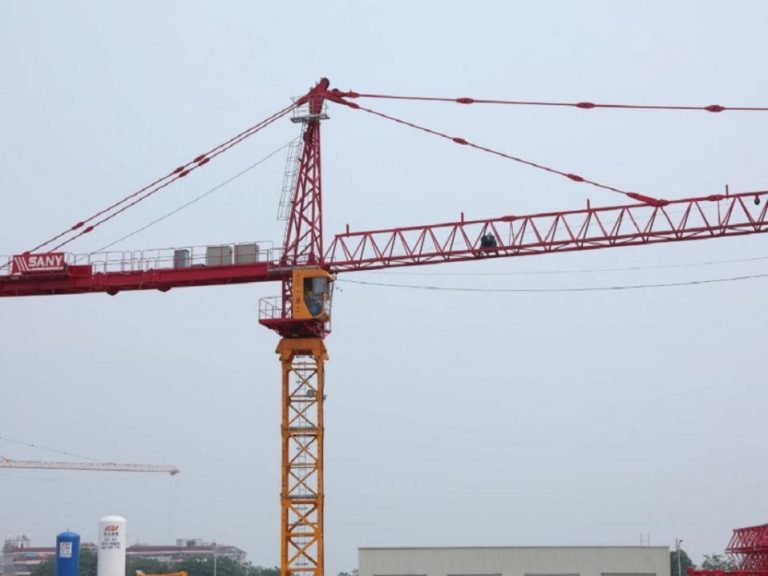
The Internet of Things (IoT) revolutionizes dump truck fleet management by connecting vehicles to advanced technology. Through IoT, operators gain access to real-time data, enabling more informed decisions and streamlined operations. Increased efficiency, cost reduction, and improved safety are possible by leveraging IoT for fleet management. Explore the significant benefits IoT brings to dump truck operations and understand how it transforms traditional management approaches.
The Role of IoT in Modern Fleet Management
Real-Time Tracking And GPS Monitoring
Fleet managers track dump trucks in real-time through IoT devices, enhancing operational efficiency. GPS monitoring offers precise location data, helping dispatchers manage routes effectively. By pinpointing vehicles at any moment, operators minimize idle time, ensuring faster deliveries. This visibility allows for better resource planning and increased productivity, ultimately leading to more seamless fleet operations and enhanced client satisfaction.
Data-Driven Decision Making For Operations
IoT leverages data analytics to guide operational decisions with precision. Fleet managers can analyze driving patterns, fuel consumption, and vehicle maintenance needs. Insights into these areas allow targeted improvements, streamlining operations and reducing costs. Decision-makers are empowered with data to optimize productivity and innovate processes, leading to sustained competitive advantages and enhanced fleet performance.
Reducing Costs With Connected Technology
IoT helps reduce costs by improving operational efficiencies. Connectivity means fewer maintenance issues through timely alerts and data insights. Real-time monitoring assists in identifying fuel waste and optimizing routes, lowering fuel expenses. Reduced breakdowns and well-maintained equipment contribute to lower repair costs. Connected technology thus results in significant financial savings for fleet owners, boosting overall profitability.
Enhancing Safety and Compliance with IoT
Monitoring Driver Behavior And Performance
IoT devices monitor driver behavior, highlighting areas needing improvement. Sensors detect harsh braking, rapid acceleration, and over-speeding, informing fleet managers of risky driving habits. Feedback systems provide drivers with actionable insights for safer practices, fostering a culture of safety. Through this continuous monitoring, accidents are reduced, promoting the well-being of both drivers and the public.

Improving Vehicle Safety Standards
IoT elevates vehicle safety by continuously tracking equipment health. Sensors detect potential mechanical failures before they become critical issues. Maintaining optimal vehicle conditions reduces the risk of accidents caused by equipment malfunction. Regular data feedback ensures vehicles meet safety standards, keeping fleets compliant and secure on the road while enhancing reliability and service quality.
Ensuring Regulatory Compliance Through Automation
Automation through IoT simplifies adherence to regulatory standards. Automated logging and reporting systems streamline record-keeping, ensuring compliance with industry regulations. IoT tools track hours of service, vehicle inspections, and emissions, providing transparent and accurate documentation. This automated process minimizes human error, reducing the risk of non-compliance penalties for fleet operators.
Boosting Efficiency And Reducing Downtime
Predictive Maintenance With Sensor Data
IoT sensors provide real-time condition monitoring, predicting maintenance needs before failures occur. Analyzing data trends alerts managers to potential issues, reducing unexpected breakdowns and downtime. Scheduled maintenance becomes more efficient, prolonging the lifespan of vehicles and ensuring operational continuity. Predictive maintenance strategies lead to cost savings and enhanced fleet productivity.
Fuel Management and Consumption Optimization
Connected IoT systems optimize fuel usage by analyzing consumption patterns and identifying waste. Monitoring fuel levels in real-time allows for better route planning and load management. These insights help fleet managers implement fuel-saving strategies, reducing costs and promoting eco-friendly operations. Efficient fuel management enhances profitability while contributing to sustainable practices.
Route Optimization For Faster Deliveries
IoT technology enhances route optimization by using real-time data to navigate around traffic and construction. GPS data provide insights into the most efficient paths, minimizing delays. Optimized routes save time and reduce fuel consumption, boosting on-time delivery rates. By leveraging IoT, fleet managers ensure efficient route planning, leading to faster and more reliable service.
Future Trends Of IoT In Dump Truck Fleet Management
Integration With AI And Machine Learning
The integration of AI and machine learning with IoT will revolutionize fleet management. AI-driven insights enable advanced analytics, improving decision-making processes. Machine learning algorithms can predict operational trends, enhancing efficiency and safety. These technologies will create intelligent ecosystems, offering unprecedented levels of automation and enhancement in dump truck fleet management.
Expansion of Smart Infrastructure
The expansion of smart infrastructure will further IoT’s impact on fleet operations. Smart roads and connected traffic systems can communicate with dump trucks, providing real-time traffic insights. This connectivity enhances route optimization, reduces travel time, and minimizes fuel consumption. The development of smart cities will foster more efficient logistics, improving overall fleet performance.
Sustainability And Environmental Impact
IoT plays a crucial role in supporting sustainable fleet management practices. Through improved fuel efficiency and reduced emissions monitoring, fleets minimize their environmental footprint. IoT systems facilitate eco-friendly driving practices, encouraging compliance with environmental standards. The shift towards sustainable fleet operations aids in the global initiative to mitigate climate change.
Conclusion
IoT is transforming dump truck fleet management by offering real-time tracking, enhancing safety, and optimizing daily operations. The seamless connection provided by IoT leads to cost savings, increased efficiency, and better compliance with strict industry regulations. As technology advances, trends such as AI integration and smart infrastructure will drive further significant improvements. Fully embracing IoT promises a smarter, more sustainable, and highly productive future for modern fleet management.





